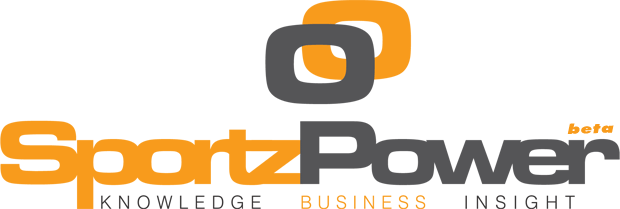
Introduction
On March 28, 2012, U.S. District Judge Kevin Castel of the United States District Court for the Southern District of New York passed a temporary restraining order in favour of Nike, Inc., restraining Reebok from manufacturing, distributing, selling, shipping and accepting orders for athletic and casual apparel sold or printed by Reebok bearing the name of American football quarterback Tim Tebow. Further, Reebok was required to inform its retailers and distributors that any sale of the products would expose them to liability, recall all such products in distribution channels controlled by Reebok and repurchase retailers’/distributors’ stock of the products. Judge Castel however rejected Nike's demand that Reebok destroy any unauthorized products. Nike and Reebok eventually decided to settle the matter out of court.
Background
The National Football League (NFL) is the highest level of professional American football in the United States and is considered the top professional American football league in the world. The NFL is the most attended domestic sports league in the world by average attendance per game. National Football League Properties (NFLP) is the merchandising and licensing arm of the NFL, founded in 1963 to maintain control of the brands of the NFL as well as its franchises and to license the creation and sale of official NFL merchandise. The National Football League Players Association (NFLPA) is the labour organization for the professional football players in the NFL, representing 1,800 NFL players in matters concerning wages, hours, working conditions, players' rights, etc. Formed in 1994, NFL Players, Inc. (NFLPI) is the NFLPA’s licensing and marketing subsidiary. Nike, Inc. is one of the world's leading suppliers of athletic shoes and apparel and a major manufacturer of sports equipment. Reebok International Limited, a subsidiary of the German sportswear company Adidas since 2005, is a producer of athletic shoes, apparel, and accessories. Timothy Richard Tebow is a professional football player currently with the New York Jets having been traded by the Denver Broncos. In 2010, a new rule for the 2011 NCAA football season banning messages on eye paint was dubbed ‘The Tebow Rule’ by the media as it would affect Tebow’s match routine of displaying biblical verses on eye paint. He was named America’s favourite professional in a recent ESPN poll. By the end of the 2011 NFL season, Tebow's Denver Broncos jersey was the second highest selling NFL jersey among all NFL players.
Facts
In 2001, Reebok entered into an exclusive 10-year contract with the NFL that was worth $250 million to manufacture market and sell NFL licensed merchandise for all 32 NFL teams. This decision by the NFL to award an exclusive license to Reebok was challenged by American Needle, Inc., the NFL’s previous licensee for over two decades. The matter was decided by the Supreme Court of the United States in American Needle, Inc. v. National Football League, 130 S.Ct. 2201 (2010). The crux of the debate was whether a professional sports league was a single entity under Section 1 of the Sherman Act. The Supreme Court held that the member teams of the NFL are subject to antitrust scrutiny for licensing activities carried out through NFLP and that the NFLP's activities were not the legal equivalent of those of a single entity.
In October 2010, Nike entered into an exclusive five year contract worth US$ 1.1 billion with the NFL, beginning 1 April, 2012 to sell apparel for all 32 teams in the NFL.
Tebow’s trade to the New York Jets from the Denver Broncos was announced on 21 March, 2012, generating massive media coverage during the NFL’s customary off- season period and creating great demand for related merchandise, especially in the New York area. Although Reebok’s license had expired on 1 March, 2012, Nike’s licence would be operative only from 1 April, 2012. Further, Reebok was authorised to manufacture products with NFL marks during this period, but not any products featuring an individual player without such player’s consent. Reebok sought to capitalise on the demand for Tebow related merchandise in the New York area by manufacturing 6,000 jerseys and 25,000 T-shirts bearing the logos of the Jets and the NFL and the name and jersey number of Tebow. Of those, only about 400 jerseys had Reebok's name or logo, while the 25,000 T-shirts and the remaining 5,600 jerseys did not have any Reebok markings. Tebow’s authorised representatives engaged with Reebok, advising the company that its use of Tebow’s name was unauthorised, be discontinued immediately and that all products relating to Tebow be recalled, but received no response.
In view of the above, Nike initiated legal proceedings against Reebok, seeking preliminary and permanent injunctive relief, punitive damages and attorneys’ fees arising from Reebok’s unauthorised and improper use of Tebow’s name on the Jets apparel. Reebok’s conduct amounted to unfair competition under the Lanham Act, misappropriation of rights to publicity, tortious interference with Nike’s current and prospective business relationships and unjust enrichment.
Order
In its complaint, Nike had argued that any legitimately licensed NFL player/team related product requires the grant of two distinct intellectual property rights. First, the right to use the trademarks of the NFL and/or its constituent clubs. Such right is controlled exclusively by and may be granted only by NFLP. It is relevant to note that NFLP does not have the authority to grant any third party the rights to use players’ names or numbers. Further, NFLP, in its licenses for use of NFL trademarks, logos and word marks, explicitly disclaims any such rights and clarifies that it shall be the sole responsibility of the manufacturer to obtain any right to use players’ names and numbers. Second, manufacturers can acquire the right to use an individual NFL player’s name and number on merchandise by either obtaining a license directly from the individual player or entering into a ‘group license’ arrangement with NFLPI.
Nike had obtained a license from Tebow to utilise his name on merchandise. Further, Nike had also acquired a group license with NFLPI to use an aggregate of the identities of six or more NFL players in connection with the manufacture and sale of certain products, namely jerseys, t-shirts and fleece apparel. Reebok had not obtained any permission from Tebow or have an existing license from NFLPI.
In its claim for relief under the Lanham Act, Nike alleged that Reebok’s use of Tebow’s name in the apparel as well as advertising material, etc. was likely to cause confusion or to deceive potential customers that the merchandise was approved by Tebow. Further, Reebok had misappropriated the commercial value of Tebow's identity and celebrity by using his name without his consent for purposes of trade or commerce in connection with the NFL merchandise. As the exclusive licensee for the use of Tebow's name on apparel, including the use of his name on New York Jets-related apparel sold through sporting goods retailers, Nike was therefore responsible for enforcing and protecting his publicity and commercial rights.
Nike contended that Reebok had wrongfully and intentionally interfered with Nike's current and prospective relationship with various retailers of New York Jets-related apparel, including leading sporting apparel retailers. Nike also contended that Reebok was aware of these relationships as Reebok directly competed with Nike to supply products to these retailers. In Nike’s contention, Reebok appropriated Tebow's name and celebrity and used it for the purpose of promoting, marketing, advertising and selling New York Jets-related apparel. Finally, it was alleged by Nike that Tebow had not authorized Reebok's use of his name for such apparel as Nike owned the exclusive right to use Tebow's name for such apparel.
In passing the temporary restraining order in favour of Nike, Judge Castel concluded that Nike had shown sufficient reason for such a temporary restraining order to be passed.
Conclusion
Generally, individual players may exploit rights by themselves (if not conflicting with the rights of their clubs/team sponsors/partners) whilst the club/team may exploit the players’ image rights as part of the whole squad. Apparel manufacturers may seek to maximise sales of jerseys by providing customers the option of purchasing team jerseys ‘customised’ with the name and jersey number of popular players. Apparel manufacturers often charge a premium for such facilities. In manufacturing or offering for sale such products, they adopt one of two approaches. While one approach has been discussed in the dispute between Nike and Reebok, the other approach, often adopted in Europe, is to enter into separate arrangements with their clubs in relation to the exploitation of the player's image and commercial value - earnings from shirts and other merchandising.
Such agreements, entered into in addition to any employment agreement with the club, become especially relevant in instances where players such as Lionel Messi (FC Barcelona) or Cristiano Ronaldo (Real Madrid C.F.) endorse Adidas and Nike respectively, but are contracted to clubs that have entered into agreements with Nike and Adidas respectively. Hence, apparel manufacturers are often keen on ensuring that players who endorse their products are also contracted to clubs associated with the apparel manufacturer. David Beckham’s transfer to Real Madrid from Manchester United, subsequent transfer to Los Angeles Galaxy, loan arrangement at AC Milan and desire to appear for Team GB at the London Olympics 2012, all teams associated with Adidas, are widely viewed to be instigated by Adidas to capitalise on the Beckham brand.
The standard playing contract for IPL players provides procedures and principles for conflicting commercial rights (team sponsor rights vs. conflicting player sponsor rights) to be resolved.
The legal principles, practice and procedures in India with respect to player image rights and, in particular, those relating to the use of individual player attributes in team merchandising initiatives remain works in progress. As the value of the domestic merchandising market grows, India can expect a growing number of disputes such as the one relating to Tebow and a legal and contractual balance being found between the rights of players and the teams that they represent.
- Log in to post comments

